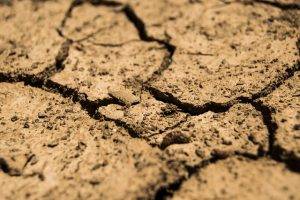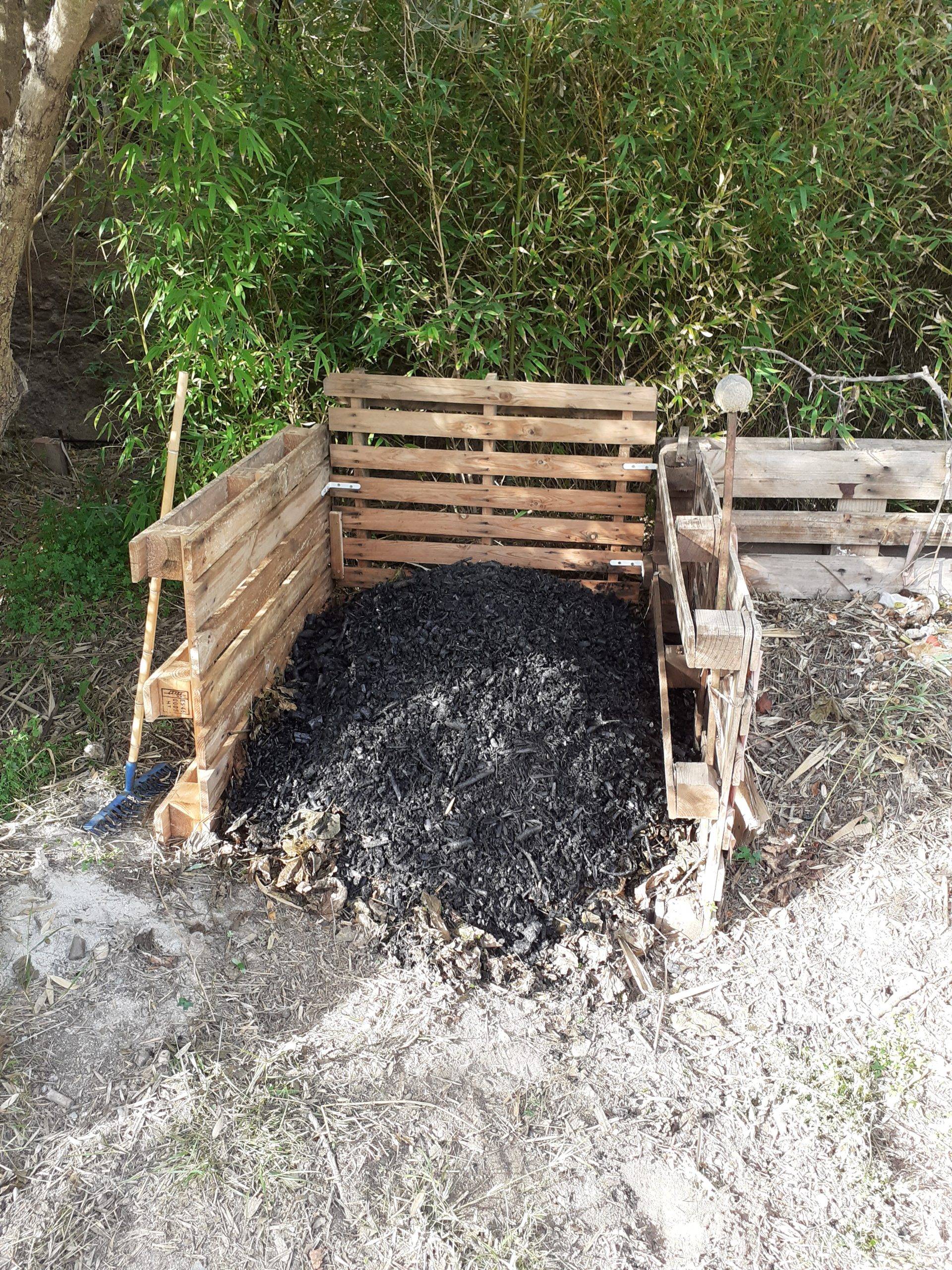Help Finance our Project in exchange of Biochar
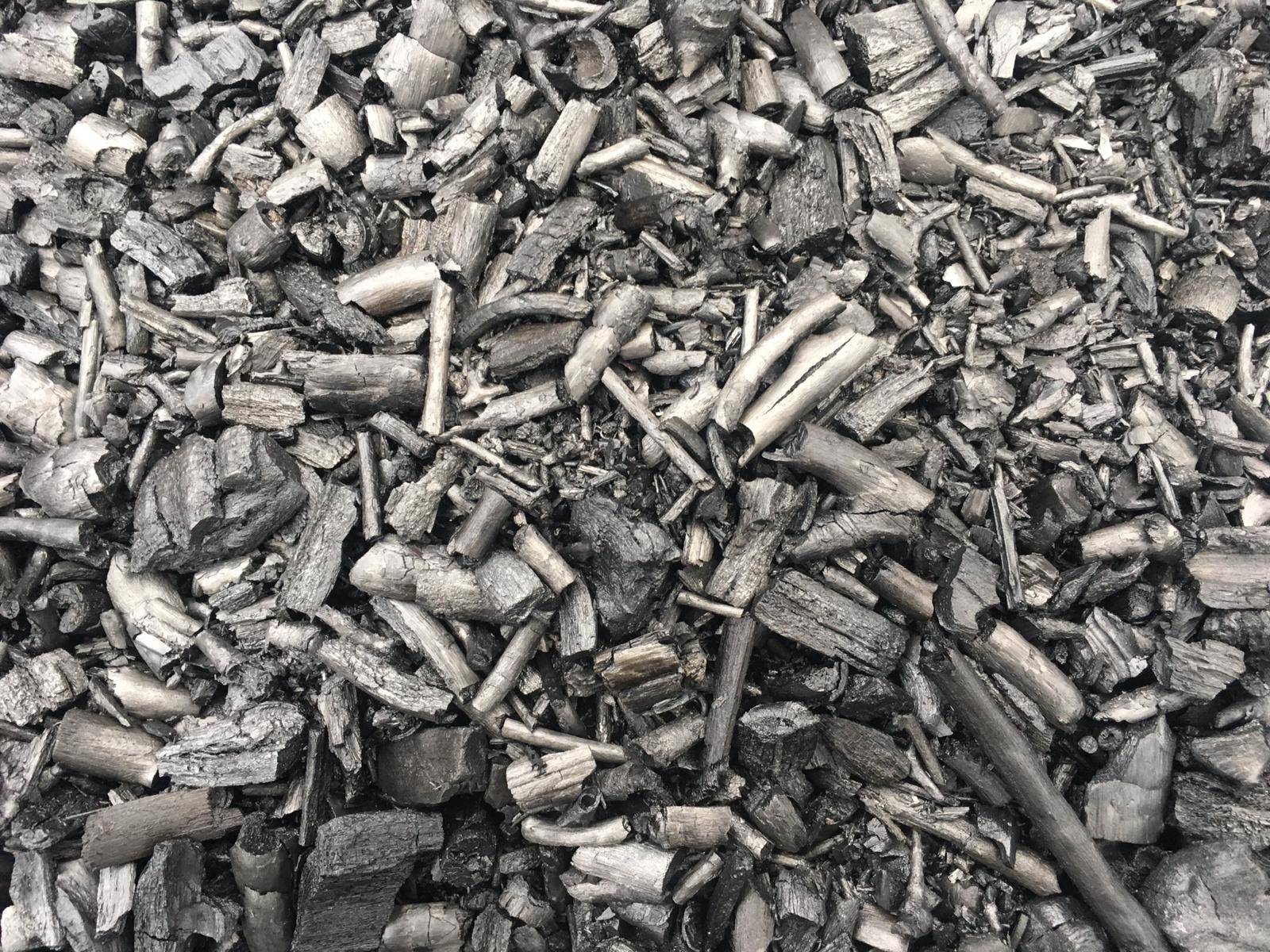
One of the ways Sierra Preta finances its operations is through enrolling members to our association, who pay in exchange of the Biochar our producers generate.
Consumer Members are the financing powerhouse of our associative work, and this support is what makes our mission a success!
Typically, a 20L bag equates to 4kg of dry Biochar, and is enough to mix with 2 large 40L sacs (80L) of manure or compost to then apply to trees or a food garden.
This 100L Biochar-compost mix can then be spread across 20-50 square meters of soil depending on your preferred application ratio.
The recommended application Biochar-compost mix to soil for larger scale ranges from 5 to 20 tonnes per hectare
Consumer Bronze
Consumer Silver
Consumer Gold
Consumer Platinum
Consumer Diamond
Consumer Dragon
Contact +34 621 213 140
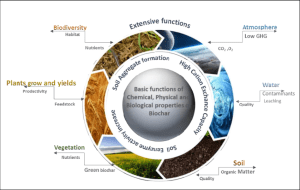
Biochar, a type of charcoal produced from organic materials through a process called pyrolysis, finds application in various domains due to its unique properties and benefits.
Here are some key domains where Biochar is used:
Biochar is often added to soils as a soil amendment to enhance fertility, water retention, and nutrient availability. It can improve soil structure, increase microbial activity, and sequester carbon in the soil, promoting sustainable and productive agricultural practices.
Biochar can play a role in carbon sequestration by capturing carbon from biomass that might otherwise decompose and release carbon dioxide into the atmosphere. Incorporating Biochar into soils helps store carbon in a stable form for a longer period.
Biochar production can be a way to manage organic waste, such as agricultural residues, wood waste, and other biomass materials that might otherwise contribute to landfill waste or open burning. By converting these materials into Biochar, waste is repurposed into a valuable resource.


The pyrolysis process used to produce Biochar can also yield bioenergy in the form of bio-oil and syngas. This can contribute to the renewable energy sector.
Ongoing research explores new applications for Biochar, including its use in composite materials, as a catalyst support, and in specialized environmental remediation projects.
Overall, Biochar's versatility and beneficial properties make it a promising tool for addressing environmental and agricultural challenges in various domains.
Adding Biochar to livestock bedding or manure management systems can help reduce odors and capture nutrients, thereby improving waste management on farms.
Biochar can be used in potting mixes and soil blends for container gardening, landscaping, and urban agriculture to enhance plant growth and water retention.
As Biochar sequesters carbon in soils and reduces emissions from organic waste, it can play a role in mitigating climate change by reducing greenhouse gas concentrations in the atmosphere.
Biochar has been used in water treatment systems to remove contaminants, such as heavy metals and organic pollutants, from water sources. Its porous structure and high surface area make it effective for adsorption and filtration.
Biochar can aid in ecological restoration efforts by improving soil quality in degraded or disturbed landscapes, promoting vegetation establishment.
In aquaculture systems, Biochar can be used to improve water quality by adsorbing excess nutrients and pollutants, creating a healthier environment for aquatic organisms.

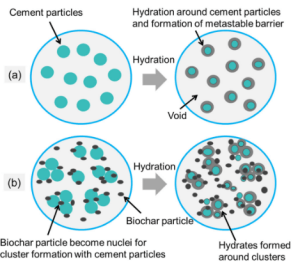
Biochar has been explored as a potential additive in construction materials due to its unique properties, such as its porous structure, carbon sequestration potential, and potential to enhance certain properties of construction materials. While still an emerging field, there are several ways Biochar can be used in construction:
Biochar can be added to concrete mixes to improve their properties. The porous structure of Biochar can help increase the porosity and reduce the density of concrete, making it lighter and potentially improving its thermal insulation properties. Additionally, the carbon content of Biochar can contribute to carbon sequestration in concrete, helping to offset its environmental impact.
Biochar's insulating properties can contribute to better thermal regulation in construction materials. Incorporating Biochar into materials like plaster, insulation panels, or cementitious products can help regulate temperature and reduce energy consumption for heating and cooling.
Some studies suggest that adding Biochar to construction materials could enhance their fire resistance properties due to its heat-absorbing properties and ability to delay ignition.
Biochar's lightweight nature can be advantageous in producing lightweight construction materials, reducing the overall weight of structures. It can be used in the production of bricks, blocks, and other building components.
Biochar's porous structure allows it to absorb and release moisture effectively. This property can be useful in materials designed for moisture regulation, such as plaster and coatings that help prevent mold and moisture damage.
By incorporating Biochar into construction materials, the carbon content of Biochar can be effectively locked into the material, contributing to carbon sequestration. This can offset the carbon footprint associated with the production of conventional construction materials.
Biochar production provides a potential avenue for utilizing organic waste materials that might otherwise be discarded. Incorporating these waste-derived Biochars into construction materials can promote a circular economy and reduce waste.
Biochar's ability to absorb and release moisture slowly could potentially help reduce cracking and shrinkage in certain construction materials.
